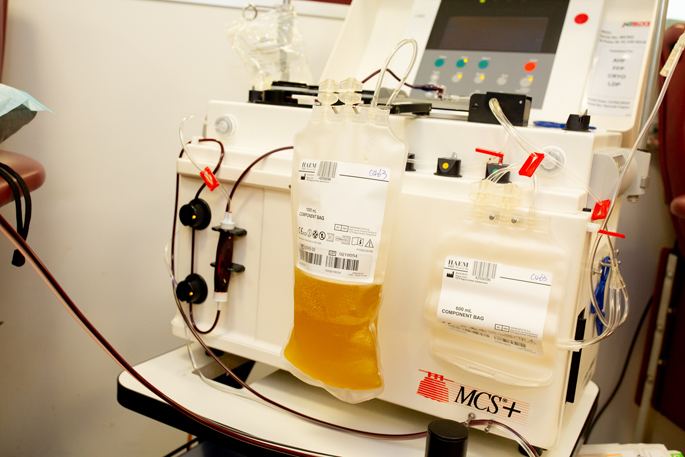New Zealand Blood Service has released new figures that reveal another 8000 plasma donors are needed to meet New Zealand's growing demand.
'Plasma demand is increasing by more than 12 per cent year on year,” says a statement issued by NZBS.
'The need for plasma donations increased by 45 per cent between 2015 and 2019.”
New Zealand currently has approximately 10,000 plasma donors, with another 8000 donors needed by June 2022.
Plasma is used for an ever-increasing number of conditions, including autoimmune disorders, accident and trauma patients, boosting the immune systems of people with low levels of antibodies, and providing special clotting factor concentrates for people with bleeding disorders.
NZBS is seeking out new donors and asking existing plasma donors to give more than six times per year.
'While we are currently able to meet demand, the need for more plasma donors, and more donations from existing plasma donors, is very real,” says NZBS spokesperson Asuka Burge.
'New Zealand will soon require more plasma donations than whole blood donations, and we currently rely on regular plasma donors to ensure we have enough; one plasma donation can give up to three times the amount of plasma as a regular whole blood donation.
'Plasma donors can also give more frequently; because red blood cells are returned to the body, people can donate up to every two weeks, as opposed to every three months. Plasma donation also takes marginally more time than whole blood donation – around 90 minutes as opposed to 60 minutes.”
NZBS is confident New Zealanders will step up to the challenge, ensuring enough plasma is donated to meet the country's needs.
'New Zealanders are incredibly generous, and we're hoping that by educating people on why plasma is so crucial, we won't need to face a situation where we are unable to meet demand from within our own country.”
One recipient of plasma donation is six-year-old Harry McPhail.
Harry was born with X-linked agammaglobulinemia, a rare genetic disorder that means his body can't produce mature B-cells, the antibodies which fight antibacterial infections.
After three hospital admissions for pneumonia in his first year of life, Harry was given immunoglobulin from blood plasma which is injected into him weekly. Although Harry will need this treatment for the rest of his life, he hasn't been readmitted to hospital since.
'Harry is now healthy and happy, and thanks to plasma donors he lives a normal life. He's very sporty, and he loves soccer best,” says Harry's mum Marie.
'It's amazing – every week he is given these little bottles of liquid people have donated, and now he doesn't get sick any more. We are so thankful to the donors for giving their time and keeping Harry healthy.”



0 comments
Leave a Comment
You must be logged in to make a comment.